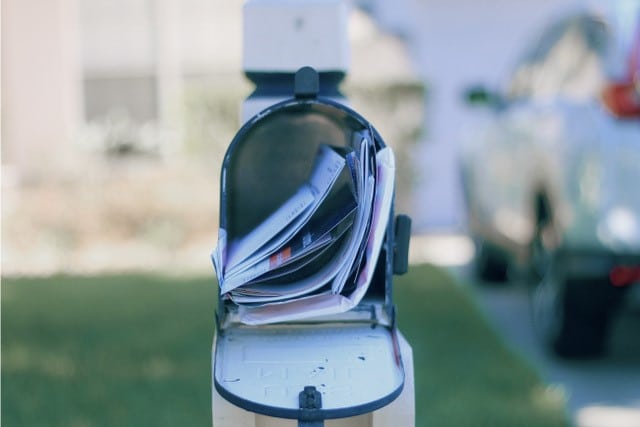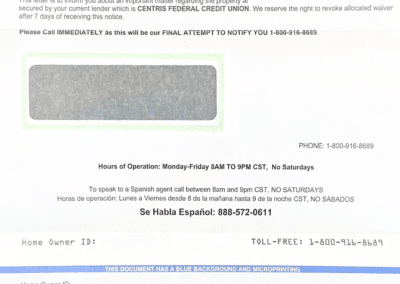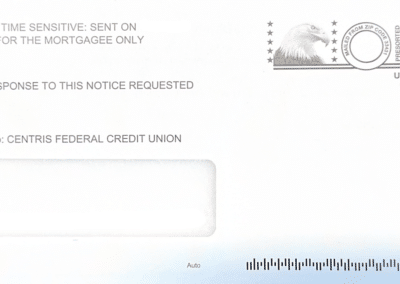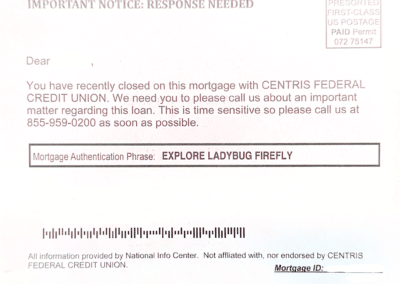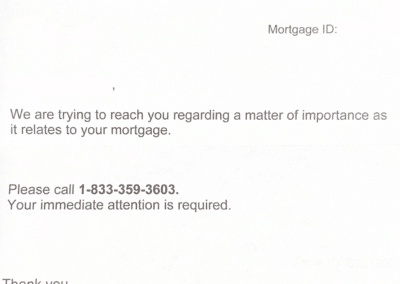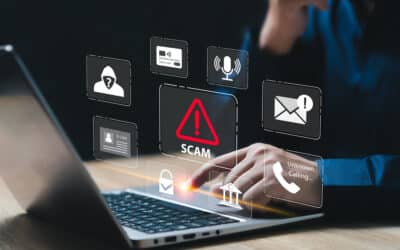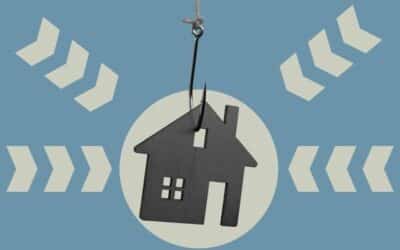Many people notice more unsolicited mail arriving at their house after closing a mortgage or a home equity product, such as a home equity line of credit (HELOC) or home equity loan. Some of these mailings include sales pitches, while others use urgent language that may cause concern. Here’s everything you need to know about the increase in junk mail after you close on a home or home equity lending solution.
Why Am I Getting So Much Physical Junk Mail Now?
Companies send these letters to get you to purchase supplemental products or services in conjunction with your new mortgage or home equity product. Whether you need these products or services is up to you, but we urge you to proceed cautiously. These mailings are often framed in a way to look like authentic communications from your lender rather than the advertisements they truly are.
To clarify the situation, Brian Beard, our Assistant Vice President of Mortgage Production, answers frequently asked questions and explains why you may be getting these mailings, who they are from, and how they obtained your information in the first place.
What Do These Mortgage Mailings Look Like?
Beard says these mailings come in many forms. “They could offer mortgage protection insurance, home/appliance warranties, home-sale record processing, or lower interest rates.” Some may not include an offer and instead tell you to call a certain number immediately.
Here are a few examples:
Are These Mailings From My Lender?
No, these mailings for mortgage insurance, mortgage protection plans and other services are not from your lender, according to Beard. Many companies that use these mailings will type the lender’s name in bold to make it seem like it’s from your lender. Looking closer, most mailings have small text stating, “Not affiliated with or endorsed by any bank or lending institution.”
And if you’re unsure whether a mailing is legitimate, Beard says to “contact your lender directly to verify.”
Did My Lender Sell My Information?
No. Many lenders seek a trusted relationship with their members and clients and have measures to protect your information. Centris Federal Credit Union will never sell your information.
So then, how did these companies get your personal details? Beard explains, “Once you close on a mortgage or home equity product, some details about that become public record, such as your name, address, lender, and loan amount. Many companies use a service to notify them of any title changes or new credit reporting related to mortgages, and then use that publicly available information to market to you.”
Are These Mailings Scams?
Some are mail scams and typically, you can spot the red flags like the use of urgent language.
“While some are legitimate offers, fraudsters, unfortunately, take advantage of the information they can access. That’s why it’s essential to be vigilant with these mailings and not fall susceptible to their urgent language,” says Beard.
Is My Loan in Trouble?
Likely no. From Beard’s experience, many of these mailings contain vague and urgent language that could make you panic. Some mailings might say, “We have been trying to reach you regarding a matter of importance related to your mortgage,” or “There’s an issue with your loan.” Beard assures you that there is likely nothing wrong with your loan, and if you’re unsure or just want to be sure, contact your lender directly to verify.
How Do I Stop This Junk Mail From Coming to My House?
You can reduce the amount of unsolicited mail in your mailbox in two major ways:
- Opt out of credit and insurance marketing, such as pre-qualification letters.
- Opt out of mail from marketers.
Beard urges us to remember that “this mail is not coming from your lender, so opting out of your lender’s mail will not stop this type of mail.”
How Can I Tell if the Mail Is From Centris?
Our correspondence will not include language such as “Call Now for a Limited Offer.”
“Never send money or share personal information with unsolicited services until you’ve verified their legitimacy,” urges Beard.
If you receive mailings that reference Centris Federal Credit Union or your accounts and are unsure if they’re legitimate, please don’t hesitate to contact us directly or call us at 402-334-7000. For more about how to stay protected from fraud and scams, visit our free Cybersecurity Center.
Federally Insured by NCUA.
